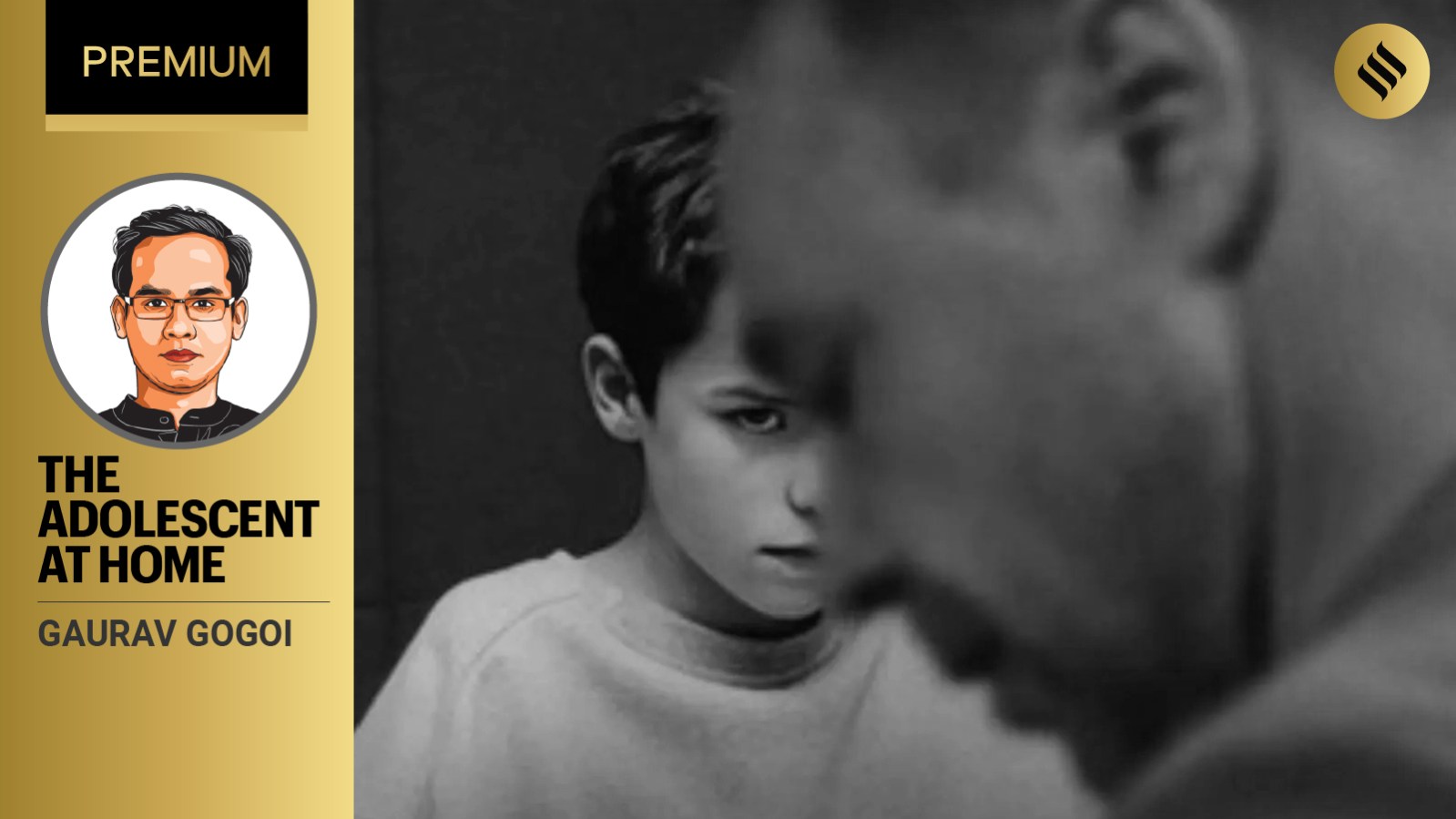Opinion Tackling toxic masculinity must be a national priority
The weight of expectation, the fear of judgment, the suffocating silence around mental health — these are burdens no young person should carry alone
 The recent Netflix series Adolescence offers valuable insights into the emotional struggles of today’s youth, helping us better understand the cracks in our support systems and the damaging influence of online culture.
The recent Netflix series Adolescence offers valuable insights into the emotional struggles of today’s youth, helping us better understand the cracks in our support systems and the damaging influence of online culture. Being a young person today is anything but simple. For many young Indians, adolescence is no longer a carefree phase but a high-pressure journey marked by academic stress, social media scrutiny, and emotional isolation. Beneath the surface of exam scores, digital connectivity, and outward success lies a growing undercurrent of anxiety, depression, and emotional struggle, too often overlooked or misunderstood. India is facing a silent yet staggering mental health crisis — one that is disproportionately impacting its youth.
The statistics paint a stark picture of a crisis hiding in plain sight. According to the National Crime Records Bureau (NCRB), over 40,000 student suicides have been reported in India in the past five years — an average of more than 20 young lives lost every day. This is indicative of the overwhelming emotional pressure weighing on our students. Yet, mental health remains a neglected area in our public health agenda. The National Mental Health Survey (2016) found that one in 10 adolescents in India suffers from a mental health disorder, but the country allocates less than 0.5 per cent of its total health budget to mental health services. With over 250 million people under the age of 20, this underinvestment is not just a gap — it’s a crisis demanding immediate attention.
The Covid pandemic didn’t just disrupt education — it deepened an already growing mental health crisis among young people. With schools closed and real-world social interaction cut off, adolescents turned to digital platforms in unprecedented numbers. While social media offered a sense of connection, it also intensified feelings of comparison, isolation, and performance anxiety. Likes, shares, and follower counts quietly replaced self-esteem, while curated content fed unrealistic standards of success and beauty. Teenagers, already navigating complex emotional terrain, were left more vulnerable than ever. Five years later, the emotional aftermath is still unfolding. The habits formed during lockdown — compulsive scrolling, digital dependency, and the pursuit of online validation — haven’t faded. In fact, they’ve become entrenched, worsening the mental health challenges young people face today. What began as a temporary coping mechanism has evolved into a lasting struggle, with long-term consequences we are only beginning to understand.
The recent Netflix series Adolescence offers valuable insights into the emotional struggles of today’s youth, helping us better understand the cracks in our support systems and the damaging influence of online culture. One of the more subtle but insidious aspects of this digital age is the rise of influencers promoting toxic masculinity — preaching dominance, emotional suppression, and hyper-aggression as signs of strength for young boys. This ideology harms both men and women. It teaches boys to repress vulnerability and discourages them from seeking help, while simultaneously fostering environments of misogyny and emotional alienation. We must disrupt these narratives. Real strength lies not in emotional suppression but in emotional honesty. We need to normalise conversations about mental health and build a culture that celebrates empathy, self-awareness, and resilience.
Addressing this crisis requires both systemic reform and cultural change. Mental health support must be integrated into every school as a core component of student welfare — not a luxury. Trained professionals, preventive counselling, and emotional education should be standard. Alongside this, schools must teach digital literacy and emotional intelligence, equipping students to navigate online spaces safely, recognise unhealthy patterns, and protect their mental well-being in a culture that often rewards extremes.
Changing the culture around mental health also requires reshaping the way we talk about masculinity. Tackling toxic masculinity must be a national priority — not just by revising textbooks, but by promoting healthier models of masculinity that embrace vulnerability, empathy, and emotional growth. Community initiatives, media campaigns, and mentorship programmes can help shift mindsets, especially when male role models speak openly about mental health. But these cultural shifts will mean little without real investment. India must significantly boost its mental health budget to strengthen infrastructure, train more professionals, and expand access to care — particularly in rural and underserved areas. A lack of funding is no longer just an administrative gap; it’s a life-threatening obstacle for millions of young people in need.
Families play a crucial role in shaping young people’s emotional well-being. Often, stigma around mental health begins at home, where conversations about feelings are dismissed or avoided. Parents and caregivers must be equipped to recognise signs of distress and approach mental health with the same urgency as physical health. From an early age, children should be encouraged to express emotions and develop emotional intelligence in environments that see vulnerability as strength, not weakness. Public figures — politicians, celebrities, influencers — also have a powerful role. By speaking openly about their own experiences, they can help normalise mental health conversations and foster a culture of authenticity. India’s youth don’t need flawless role models — they need to see that strength and vulnerability can go hand in hand.
We often refer to the youth as the future of our country. But what future can we promise them if we fail to protect their present? The weight of expectation, the fear of judgment, the suffocating silence around mental health — these are burdens no young person should carry alone. We are at a crossroads. We can continue to brush this crisis under the carpet, hoping it resolves itself, or we can rise to the moment with courage and compassion. This is not just a policy issue — it’s a human issue. And the cost of inaction is counted in lost potential, lost futures, and lost lives.
India must choose empathy. India must choose to listen.
The writer is deputy leader of the Indian National Congress in the Lok Sabha



